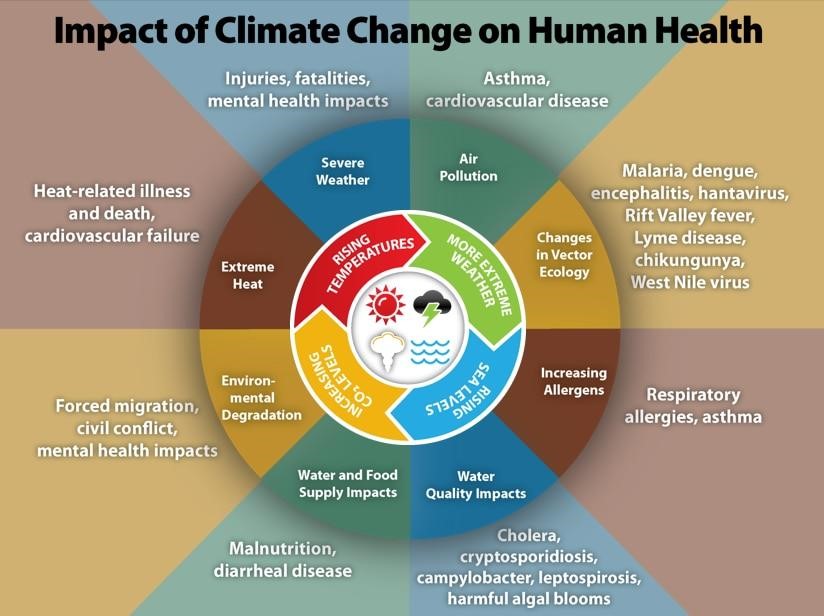Introduction
Climate change is one of the issues that everyone should be concerned about. We should think hard about what we can do while our planet deteriorates and respond accordingly. Here’s the issue and what we can do about it.
What is climate change?
According to the BBC (2021), climate change is a major, prolonged change in the earth’s weather patterns and the average temperature around the globe. Ever since the mid-1800s, humans have been releasing carbon dioxide and other greenhouse gases into the atmosphere. As a result, global temperatures are rising, causing long-term changes in the climate.
How does climate change affect our health?
The impact of abnormal weather on our health has been well recognized. Globally, more than 5 million people die each year due to extreme heat or cold.
Wildfire air pollution has been linked to respiratory and cardiovascular diseases. Fine particle matter in the air alone was responsible for at least 1.8 million fatalities worldwide in 2019, and the number of deaths is anticipated to climb in the future. Heat stroke and exhaustion can be caused by extremely hot weather and heat waves, which can exacerbate existing health issues. As temperatures rise, research shows that from 1997 to 2006, around 5,600 heat-related deaths occurred each year in 297 counties, home to more than 60% of Americans.
In only one week, a heat wave in the Pacific Northwest in June 2021 killed 600 people in Washington and Oregon.
Flooding, a common natural disaster, causes injuries as well as drowning and spreads waterborne diseases. In 2016, it affected more than 74 million people worldwide (US EPA,OA, 2016).

(Health (ASH), 2022)
What can we do to stop climate change?
As Latta (2022) suggests, we must take serious steps to protect the health and well-being of individuals all around the world, particularly those living in vulnerable areas. Reduced greenhouse gas emissions would have considerable short- and long-term health benefits and save thousands of lives in the United States alone. Climate change mitigation can limit the development of mosquito-borne diseases, save billions of dollars in healthcare expenditures, and improve the mental health of populations that frequently experience intense storms, particularly in the Bahamas, southern Africa, and the United States. The Gulf Coast However, most importantly, we must save lives. We must now make investments in health care systems and health care workers throughout the world, particularly in those vulnerable communities at the forefront of climate change.
References
BBC (2021). What is climate change? A really simple guide. BBC News. [online] 13 Oct. Available at: https://www.bbc.com/news/science-environment-24021772 [Accessed 8 December 2022]
Health (ASH), A.S. for (2022). Climate Change and Health Equity. [online] HHS.gov. Available at: https://www.hhs.gov/climate-change-health-equity-environmental-justice/climate-change-health-equity/index.html [Accessed 8 December 2022].
Latta, S. (2022). How Does Climate Change Impact Our Health? [online] Project HOPE. Available at: https://www.projecthope.org/how-does-climate-change-impact-our-health/04/2022/ [Accessed 8 December 2022]
US EPA,OA (2016). Understanding the Connections Between Climate Change and Human Health | US EPA. [online] US EPA. Available at: https://www.epa.gov/climate-indicators/understanding-connections-between-climate-change-and-human-health [Accessed 8 December 2022]
